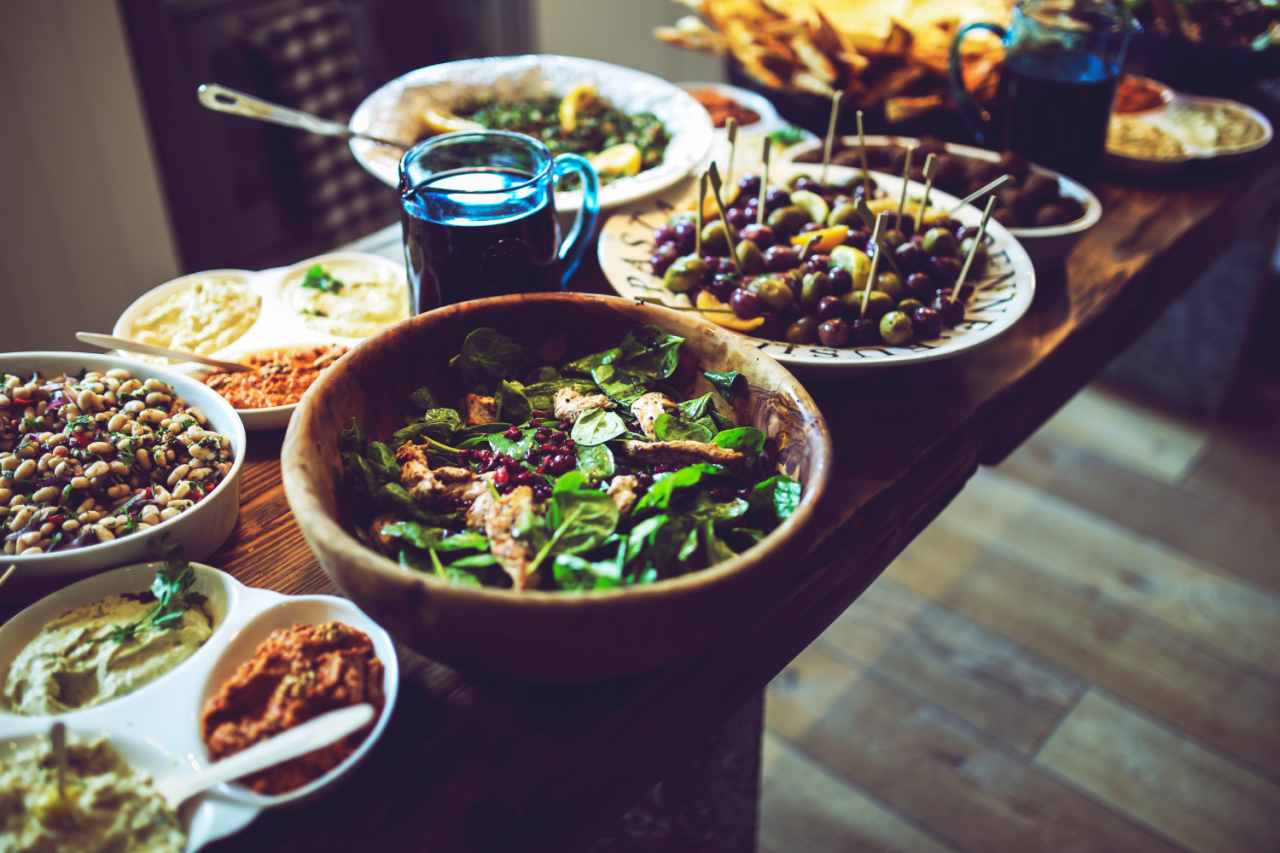
The Best Diet for Semaglutide: 5 Proven Strategies to Apply Immediately
A question that's been popping up quite a bit lately is, "What’s the best diet plan for someone on semaglutide?"
Is it the Mediterranean diet everyone’s talking about? The DASH diet? Perhaps intermittent fasting is the golden ticket?
Well, here’s the real deal:
Finding the best diet comes down to a simple, undeniable truth—
The best diet is the one you can actually stick to.
See, the most common mistake people make is diving into rigid, cookie-cutter plans that feel more like a straitjacket than a lifestyle change.
For a diet to really work its magic, it needs to be tailored specifically to your life, your tastes, and your needs.
That said, all successful diets share some essential core strategies.
Ready to dive into some dietary wisdom that could completely change your game?
5 Essential Strategies for the Best Semaglutide Diet
1. Focus on High-Protein Foods
If you’re on semaglutide and losing weight, here's a little heads-up: not all of that weight is fat—some of it is muscle!

And that's a big deal because losing muscle slows down your metabolism, and with muscle loss, you'll hit that dreaded weight loss plateau far sooner than you might expect.
But don’t stress—you can tackle both of these issues at the same time. How? By prioritizing protein. (Sure, resistance training is crucial too, but let's stick to nutrition for now.) To keep the weight loss train moving and preserve your muscle, you need to make protein your best friend.
And it’s not just about maintaining muscle—
Protein helps you feel fuller for longer, cutting down on those late-night fridge raids and maximizing weight loss. Plus, protein has a high thermic effect, meaning your body burns off 20–35% of its calories just in digestion. Compare that to fats and carbs, which only burn about 5–15%. And when you see the numbers like that, choosing protein kind of feels like a no-brainer, right?
So, what should you include on your shopping list? Think chicken, turkey, salmon, tuna, and, of course, eggs and yogurt.
Not a fan of chicken, eggs, or anything that swims? Don't stress. When you work with one of our weight-loss coaches, they'll help you find meals and foods that you’re actually excited to eat.
2. Eat Smaller, More Frequent Meals
If you're using semaglutide, you might have noticed that big meals don't sit quite right anymore. That’s because semaglutide slows your stomach’s emptying process, which is fantastic for keeping you full but not so much when you overdo it.
Overeat, and you might feel so stuffed that you don’t even want to think about food for the rest of the day.

Now, I get that skipping meals might seem like the way to go, but trust me, it’s not! Skipping meals can cost you, especially if it means skimping on protein.
To keep things comfortable and make sure you’re eating balanced meals, try eating smaller, more frequent meals throughout the day. This helps manage hunger without overwhelming your digestive system. Plus, it keeps your energy levels steady, so you’re not crashing mid-afternoon and reaching for a quick (and often unhealthy) snack.
Your game plan? Break your meals into several small mini-meals or healthy snacks. Instead of three big meals, aim for five or six smaller ones. Have a cup of high-protein yogurt and fruit mid-morning, a small salad with lean protein at lunch, and maybe some veggies and hummus in the afternoon.
Remember, it’s all about keeping things balanced and manageable. If you go too big with your meals, eating balanced on semaglutide is going to be a real challenge.
3. Stay Hydrated
Staying hydrated is a must-have, especially when you’re on weight-loss meds. Dehydration can sneak up on you and make you feel sluggish, which is the last thing you need when you’re trying to lose weight.
Drinking enough water helps keep your appetite in check and your digestion running smoothly. Plus, it can help ease some of those annoying side effects like nausea and upset stomach that can tag along with semaglutide.
So, how much water should you actually be drinking? You’ve probably heard the old "eight glasses a day" rule, right? And that’s not a bad place to start, especially if it’s more than what you’re used to.
But to get specific, the Institute of Medicine suggests that men 19 and older should aim for about 131 ounces daily, and women should go for around 95 ounces.
To turn that into something a bit more tangible, that’s roughly eight 16-ounce bottles of water for men and about six for women each day.

Keep a water bottle with you to remind yourself to drink throughout the day. And if plain water gets boring, try mixing it up with some add-in flavors. My favorite? Grape. Remember, staying hydrated isn't just about quenching thirst—it's a strategic move to boost weight loss and keep those unwanted side effects (like nausea and stomach discomfort) at bay.
4. Limit Sugary and Processed Foods
We all love a sweet treat now and then, but if you’re on semaglutide, sugary and processed foods will quickly turn into frenemies. These foods cause spikes and crashes in your blood sugar, leaving you feeling unsatisfied and reaching for more—which isn’t exactly the plan, right?
Now, I'm not saying you should never indulge—there's a time and place for everything. But if you’re serious about maximizing your weight loss on semaglutide, it's smart to keep these indulgences to a minimum.
Want to know more about how to boost weight loss on weight-loss meds? Then you'll also want to check out "5 Insider Tips for Faster Weight Loss on Semaglutide".
Here’s a little trick I recommend that will help you pick and choose indulgences: It's called the two-week test.
If the treat you want is something you’ll truly remember in two weeks, then go for it. Why not? But let’s be honest, many of the sweets we're eating aren’t quite as memorable as we make them out to be.
So, if you crave something sweet, what should you reach for instead? Fresh fruits are a solid go-to. How about a bowl of frozen strawberries or grapes, or what about an apple with some almond butter? It’s not about deprivation; it’s about switching to healthy habits, keeping things balanced, and saving those indulgences for when they’ll truly be memorable.
5. Work with a Weight Loss Coach
Finding the right diet on weight-loss medications can feel like you're trying to fit into a one-size-fits-all t-shirt (by the way, those don't exist).
And the problem is that so many diets insist that you eat eggs, yogurt, fish, and veggies. But those rarely, if ever, work. Why?
Think about it—how many people do you know who genuinely enjoy a breakfast of plain eggs, a lunch of raw broccoli, and a dinner topped off with a handful of unsalted nuts?
The truth is, a lot of folks struggle with these traditional "healthy" foods, and that's a big reason why diets so often fail.
But here’s the good news: you don’t have to eat anything you don’t want to. That's not the goal. The goal is to gradually shift from what you’re eating now to what feels right for you.
Now, what if you're scratching your head, wondering where to even start? This is where a weight-loss coach can really make a difference. A coach is essentially your shortcut to finding the best diet for you.
Wondering what that might look like in action? Then take a look at "The Perfect Semaglutide Diet Plan: Exactly What To Eat (7-Day Template)." It breaks down a full week's diet, which might just be the type of plan that could really change the game for you.
Wrapping It Up
So, we've walked through five key strategies that are downright essential for making the most of your diet while on semaglutide.
From prioritizing protein to keeping yourself well-hydrated to eating smaller meals, these aren’t just good tips—they’re must-dos to help you tackle the challenges that come with taking weight-loss medications.
And remember, the best diet isn't something you print off the web and take to the grocery store. It’s about building a plan that you can actually stick to every single day.
And these five strategies—don't think of them as quick tips; think of them as your toolkit for building a sustainable and lasting way of eating. When you weave these into your diet, you're building a foundation that will support you for many years to come.